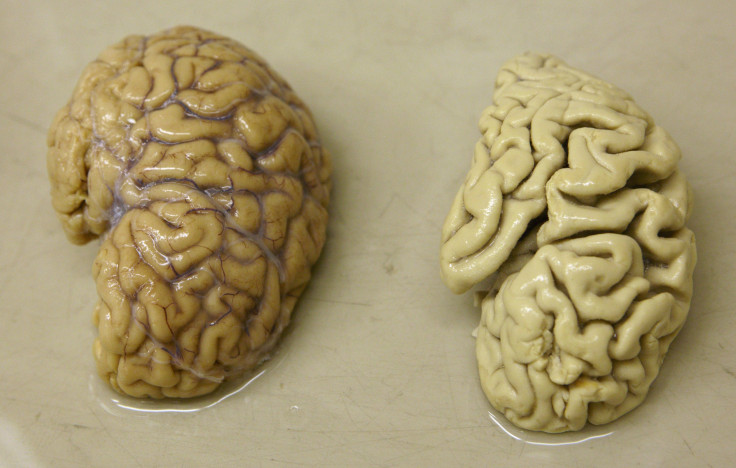Alzheimer's Disease: Detection Of Immune System Link Raises Hopes For New Treatment

New research suggests that the immune system may have a much greater role to play in the onset and progression of Alzheimer’s -- a debilitating disease that is the most common form of dementia. The findings, published in the journal Neuroscience, could lead to the development of effective treatments for dementia, which is believed to affect over 44 million people globally.
The latest research, based on tests conducted on mice, suggests that during the early stages of Alzheimer’s, certain immune system cells that normally protect the brain begin to consume arginine, an essential amino acid. Researchers found that blocking the arginine consumption with a drug called difluoromethylornithine (DFMO) in mice prevented the build-up of sticky proteins known as brain plaques, and memory loss -- the two main symptoms of the disease. Using the drug, which is normally used to treat some types of cancer, also drastically improved the performance of these mice in memory tests.
"All of this suggests to us that if you can block this local process of amino acid deprivation, then you can protect -- the mouse, at least -- from Alzheimer’s disease," Matthew Kan, one of the researchers involved in the study, said, in a statement.
While the exact role of immune system cells in causing dementia is still not clear, the new findings are encouraging as they establish a definite link between the suppression of the immune system and Alzheimer’s disease.
“We see this study opening the doors to thinking about Alzheimer’s in a completely different way, to break the stalemate of ideas in AD,” Carol Colton, professor of neurology at the Duke University School of Medicine and the lead author of the study, said.
In a statement released Tuesday, U.K.-based Alzheimer’s Society welcomed the findings. "This study in animals joins some of the dots in our incomplete understanding of the processes that cause Alzheimer's disease," James Pickett, head of research at the Alzheimer's Society, said, in the statement.
“Importantly, these new findings reflect earlier observations that arginine is reduced in the brains of people with Alzheimer's disease. The next step would be to show that targeting arginine metabolism in the brain can reduce the death of brain cells, as this was not shown in the current study,” Pickett added.
© Copyright IBTimes 2024. All rights reserved.






















